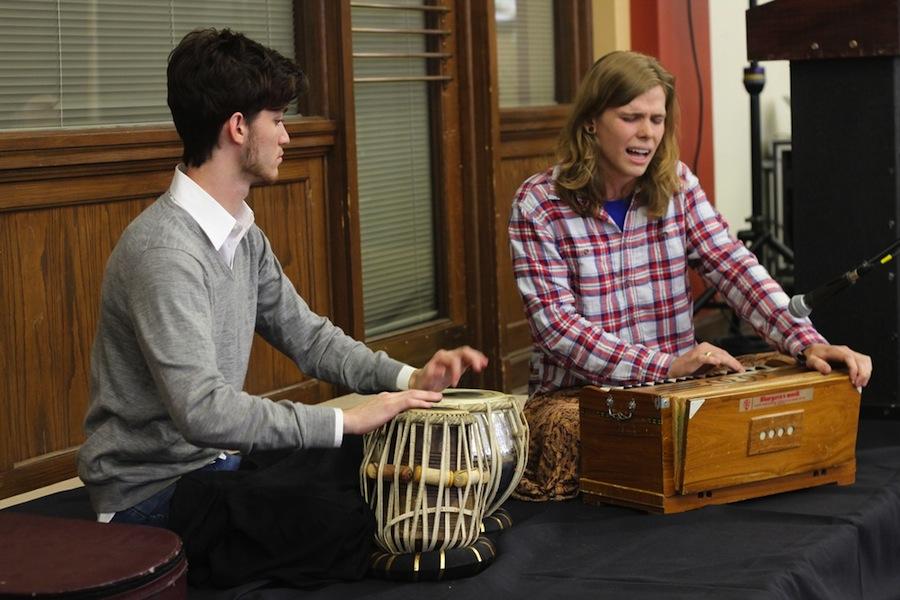Friendship Day Celebrates Interfaith, Cross-Cultural Friendships
April 13, 2012
The third annual Friendship Day Celebration showcased cooperation between diverse groups as the Root Room was filled with a multitude of people from all faiths and cultures on Tuesday, April 10.
Chinese and Arabic calligraphers shared a table as they wrote out people’s names for them. Another table provided postcards to write to students in Nicaragua or to send to fellow students on campus to let them know they are appreciated. While all these activities were going on, students milled about meeting new friends and connecting with old ones. When the time came for everyone to sit down and the ceremony to start, Friendship Day was already well under way.
Presidential Scholar of Islam Mohammad Mahallati began Friendship Day as a step to a new worldview, a higher plane of ethics. He was the Iranian Ambassador to the UN for 1987 – 1989 and during that time helped the Iran-Iraq war to come to an end. His experience in the justice system left him feeling like there must be a better way.
“While justice is important, is significant, is a foundation, it is not enough,” said Mahallati. “The realm of justice is to get and forget; when we fight for our rights we are fighting to get something. … But how about giving and forgiving?”
Mahallati then quoted Aristotle: “In a society based on friendship there is no need for justice.” He stressed that this friendship is not just the sentimental feelings between people, but a worldview. Friendship Day was created to promote and bring awareness to this concept. Mahallati’s original idea had been for the idea to apply specifically to friendship in the Muslim world, however, over time he expanded the idea to not just other faiths but also to other cultures, until it now incorporates everyone.
The speakers in the ceremony exemplified this inclusive idea of friendship. After the proclamation from city manager Eric Norenberg, who established Friendship Day as an official Oberlin holiday, students who practice Buddhism, Judaism and Christianity all provided their own unique view on friendship and its importance. Each student highlighted different aspects of friendship, whether it be within the self, with others or to the divine.
The path towards peace surely involves friendship, and the path to friendship must involve sharing your space with the brother you may have forgotten,” said Rachel Davidson, a College first-year who identifies as Jewish.
After these students spoke, spoken word artist Meeko Israel performed and shared his own perspective and message. Next, Mahallati addressed the crowd on the meaning of friendship in the Muslim tradition before introducing his friend Professor Gustav Niebuhr of Syracuse University, the author the of the book Beyond Tolerance: Searching for Interfaith Understanding in America, who gave a preview of what he planned to speak about later that night.
A Conservatory quintet concluded the ceremony, which Mahallati said he considers a success. In the future, however, he hopes to see Friendship Day spread across campus so that everyone is involved and there are no competing events. He eventually hopes to have Friendship Day be celebrated internationally.
“If you kill somebody without cause you have killed the whole world, and if you revive someone it is as if you have revived the whole world,” said Mahallati, citing Abrahamic scriptures. “So if Friendship Day saves one life, we have saved the world.”



















